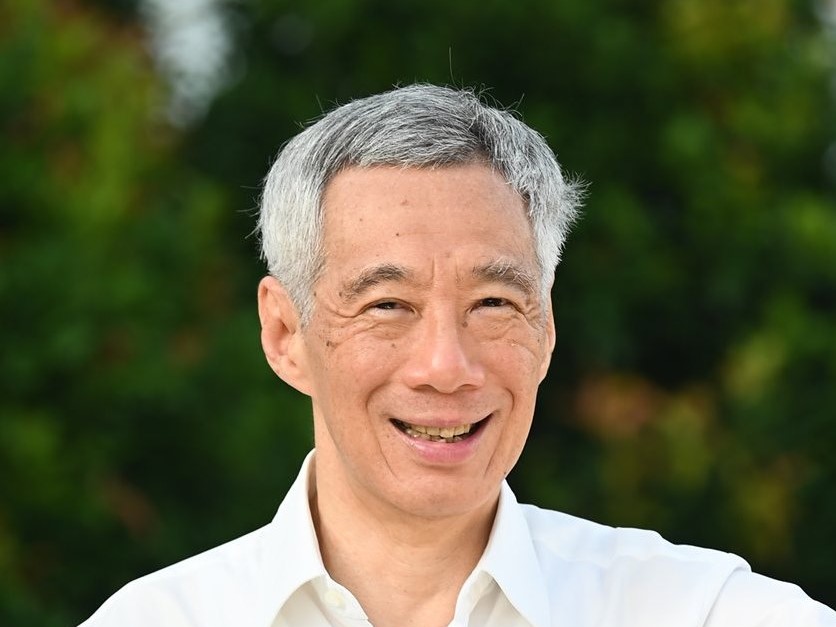KUALA LUMPUR, Dec 14 — Singapore is expected to receive the first shipment of Pfizer-BioNTech’s Covid-19 vaccine by the end of the month, the earliest Southeast Asian country to obtain this vaccine.
Singaporean Prime Minister Lee Hsien Loong said Singapore’s Health Sciences Authority has approved the Covid-19 vaccine by US pharmaceutical giant Pfizer and its German partner, BioNTech, for pandemic use.
Besides Singapore, seven other countries, including Britain, the United States, Canada, Bahrain, Saudi Arabia, Kuwait, and Mexico, have also approved the Pfizer shot. The UK, the first country to approve the Pfizer vaccine, has already begun inoculating their population, while the US issued last Friday emergency-use authorisation for the Pfizer vaccine.
“We also expect other vaccines to arrive in Singapore in the coming months. If all goes according to plan, we will have enough vaccines for everyone in Singapore by the third quarter of 2021,” Lee said in a televised address to the nation.
He noted that the Pfizer vaccine’s ultra-cold storage temperature requirement at minus 70 degrees Celsius, colder than Antarctica in winter, required infrastructure, high standards, skilled personnel and good connectivity to many different countries, all along the supply chain.
“Fortunately, Singapore has a strong ecosystem for cargo handling. Leading global logistics companies like DHL, UPS and FedEx are based here. SIA, and Changi Airport’s ground handling partners are certified by IATA (International Air Transport Association) to handle and transport pharmaceutical supplies,” said Lee.
“We are now gearing ourselves up to handle large volumes of vaccine shipments into Singapore and through Singapore, to help win the global fight against Covid-19,” he added.
“We did not get here overnight. We have always planned ahead, systematically creating opportunities for ourselves. It took us years of investment and planning, building a business-friendly climate and expanding our air links around the world. These long-term investments are now paying dividends.
Lee Hsien Loong, Prime Minister of Singapore
Lee said the Singaporean government had set aside more than SG$1 billion (RM3.04 billion) for Covid-19 vaccines, signing advance purchase agreements and making early down payments for “the most promising candidates”, including with Pfizer-BioNTech, Moderna, and Sinovac.
Like Pfizer-BioNTech, American biotechnology company Moderna also utilises an innovative mRNA technology in its Covid-19 vaccine. The mRNA vaccines stimulate our cells to produce the coronavirus’ signature spike protein in small amounts, in order to produce antibodies from our immune system. Beijing-based biopharmaceutical Sinovac’s Covid-19 vaccine, on the other hand, is an inactivated vaccine that uses killed coronavirus particles.
At the same time, Singapore’s Health Sciences Authority is also evaluating available data of Moderna’s Covid-19 vaccine, which is also expected to launch in the country, Channel News Asia reported.
“We made arrangements with pharmaceutical companies to facilitate their clinical trials and drug development in Singapore, and attracted a few to establish vaccine manufacturing capabilities here,” said Lee.
“We also supported local efforts to develop a vaccine. This gave our own scientists and researchers the opportunity to do cutting edge work. It was also insurance, in case the global supply chain was disrupted.
“This way, we built up a diversified portfolio of options to ensure that Singapore would be near the front of the queue for vaccines, and not last in line.”
Lee said a committee of doctors and experts set up by Singapore’s Ministry of Health has recommended a Covid-19 vaccination strategy of vaccinating the country’s entire adult population, but vaccinations will be voluntary.
“First priority will be given to those who are at greatest risk: Health care workers and frontline personnel, as well as the elderly and vulnerable,” he said.
“Thereafter, the committee proposes to progressively vaccinate the rest of the population and to cover everyone who wants a vaccination by the end of next year. The government has accepted these recommendations. I have personal confidence in our experts.”
Lee said he and his colleagues, including older ones, would get themselves vaccinated early to show that Covid-19 vaccines are safe.
“We have decided to make vaccinations free for all Singaporeans and for all long-term residents who are currently here,” he added.
“So I strongly encourage you to get vaccinated too, when the vaccine is offered to you. Because when you get yourself vaccinated, you are not just protecting yourself. You are also doing your part to protect others, especially your loved ones. The more of us are vaccinated, the harder it will be for the virus to spread, and the safer we will all be as a society.”
Lee also announced today that Singapore would enter its Phase 3 reopening on December 28, easing movement restrictions, after the country reported zero local transmissions on most days recently.
“Please understand that even as we enter Phase 3, the battle is far from won. The Covid-19 virus has not been eradicated. There is a long way to go,” he warned Singaporeans.
“At the same time, Singaporeans must keep our guard up, because the virus is most likely still circulating silently within our community.”
Concurrently, one million doses of the Pfizer-BioNTech vaccine is expected to be delivered to Malaysia only by the first quarter of next year, covering 500,000 people.
Malaysia has so far signed two agreements to obtain Covid-19 vaccines for a total of 30 per cent of the country’s population. The Pfizer deal, which was signed on November 24, will cater to 20 per cent of the Malaysian population with 12.8 million doses, while an Optional Purchase arrangement with the global COVAX Facility, co-led by the World Health Organization (WHO), signed on November 23 will accommodate 10 per cent of the population.
Yesterday, Utusan Malaysia reported Prime Minister Muhyiddin Yassin as saying that he has instructed Health Minister Dr Adham Baba to request Covid-19 vaccine suppliers to expedite delivery of the vaccines that are expected to arrive in Malaysia by March 2021.
Muhyiddin also instructed the Ministry of Science, Technology, and Innovation (MOSTI) to continue negotiations to increase Malaysia’s Covid-19 vaccine stocks from 30 per cent to 60 or 70 per cent.








